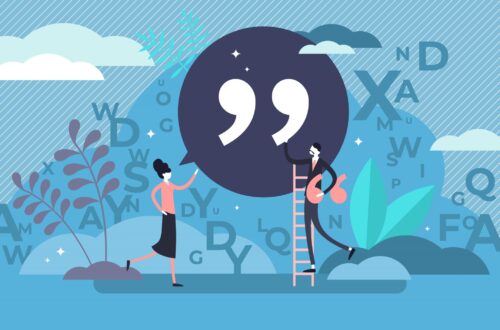This next instalment in our ‘Commonly Confused Words’ series aims to demystify ‘affect’ and ‘effect’. Often used interchangeably, ‘affect’ and ‘effect’ are widely misunderstood and misused.
As always, we will provide definitions and helpful examples to clarify these terms. For our definitions, we use the Macquarie Dictionary—the authority on Australian English spelling.
‘Affect’
‘Affect’ is a verb. It means ‘to act on’ or to ‘produce an effect or a change in’. Here are some examples:
Long periods of starvation affected the children’s development.
Pollen in the spring affects my breathing.
The humidity affected Joy’s hair.
‘Affect’ can also mean ‘to impress’ or ‘move in mind or feelings’. For example, ‘His rendition of ‘We Are the World’ profoundly affected me’.
Remember, ‘affect’ is a verb—it’s an action. Grammar Girl recommends this trick for remembering: verbs are actions, and the word ‘actions’ starts with ‘a’—like ‘affect’.
Also, if you are using ‘affect’ correctly as a verb, another verb such as ‘hurt’, could be substituted.
‘Effect’
‘Effect’ is a noun. It means ‘that which is produced by some agency or cause’. More simply, it is ‘a result’ or ‘consequence’. You should be able to substitute these synonyms (‘result’ and ‘consequence’) to check that you have used ‘effect’ correctly. Here are some examples:
The effect of her late arrival at work was a late departure.
A metaphor’s effect can be powerful.
The movie’s sound effects were spectacular.
His rendition of ‘We Are the World’ had no effect on me.
Nouns can take an article before them. Articles are words like ‘a’, ‘an’ or ‘the’. Mark Treddinick (2008, p. 51) explains that some other determiners can act like articles (e.g., ‘each’, ‘all’, ‘several’, ‘many’, ‘no’, and ‘any’). You can check that you have used ‘effect’ correctly by seeing if an article would fit before ‘effect’. I’ve underlined the articles in my previous examples:
The effect of her late arrival at work was a late departure.
A metaphor’s effect can be powerful.
The movie’s sound effects were spectacular.
His rendition of ‘We Are the World’ had no effect on me.
This will work most of the time, but may be less clear when ‘effect’ is used as part of a phrase. For example, ‘The law came into effect in September’. This check won’t work when you use ‘affect’, because ‘affect’ is a verb.
The Exceptions
However, there are some exceptions.
Sometimes ‘effect’ can be used as a verb that means ‘to bring about’ or ‘to make happen’. You might have seen it in the phrase ‘to effect change’, as in ‘Selina hoped to effect change’.
Sometimes ‘affect’ can be used as a noun in the field of psychology as a synonym for mood or feeling. For example, ‘The subject demonstrated a jubilant affect’.
We hope this article has been helpful. Please feel free to suggest any words you get confused in the comments below and we’ll add them to our series.



